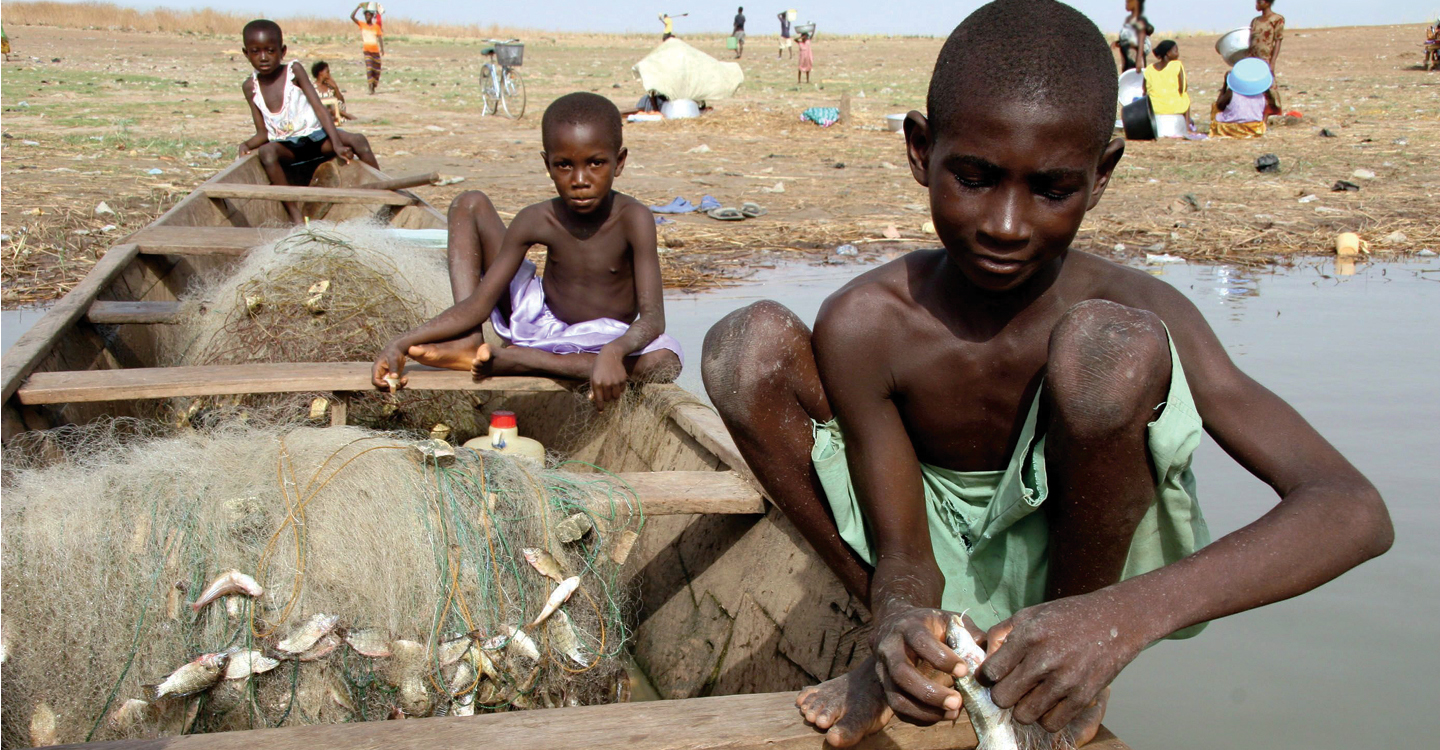In many ways, Mabel is a typical teen. She goes to school, hangs out with her friends, and daydreams about her future. But for years, Mabel’s life was anything but ordinary.
When Mabel was a young girl, her mother died, and she was sent to live with her grandparents in a poor village in the West African nation of Ghana. Unable to afford to take care of her, they sent her to work in the fishing industry on Lake Volta, one of the world’s largest man-made lakes.
There, Mabel was held captive as a slave, forced to work up to 17 hours straight with little food and no pay. Every day, she woke early to gather firewood and cook. Then she spent her days folding fishing nets on the lake, where strong winds constantly threatened to capsize the wooden boats—and drown everyone onboard. At night, she had to make dinner for the other workers.
“I hardly slept at all,” Mabel told reporters years later. “Every evening, I hoped that there would be a storm so I wouldn’t have to go out on the lake.”
Since then, Mabel’s life has improved dramatically. When she was 15, aid workers raided the lake and brought her to safety. She was able to attend school for the first time and now dreams of becoming a nurse.
In many ways, Mabel is a typical teen. She goes to school, hangs out with her friends, and daydreams about her future. But for years, Mabel’s life was anything but ordinary.
When Mabel was a young girl, her mother died. She was sent to live with her grandparents in a poor village in the West African nation of Ghana. They couldn’t afford to take care of her. As a result, they sent her to work in the fishing industry on Lake Volta, one of the world’s largest man-made lakes.
There, Mabel was held captive as a slave. She was forced to work up to 17 hours straight with little food and no pay. Every day, she woke early to gather firewood and cook. Then she spent her days folding fishing nets on the lake. Strong winds constantly threatened to overturn the wooden boats and drown everyone onboard. At night, she had to make dinner for the other workers.
“I hardly slept at all,” Mabel told reporters years later. “Every evening,
I hoped that there would be a storm so I wouldn’t have to go out on the lake.”
Since then, Mabel’s life has improved dramatically. When she was 15, aid workers raided the lake and brought her to safety. She was able to attend school for the first time and now dreams of becoming a nurse.

